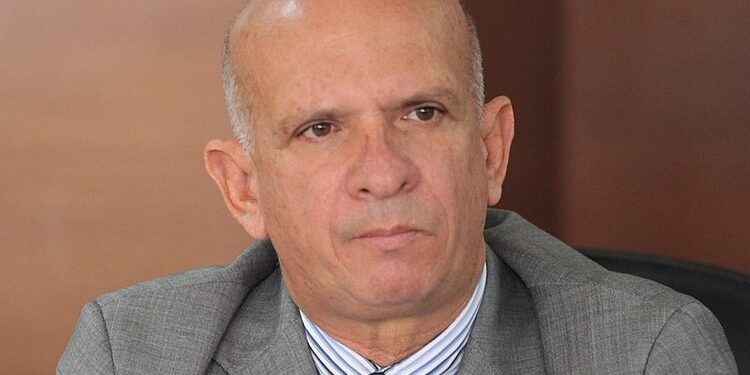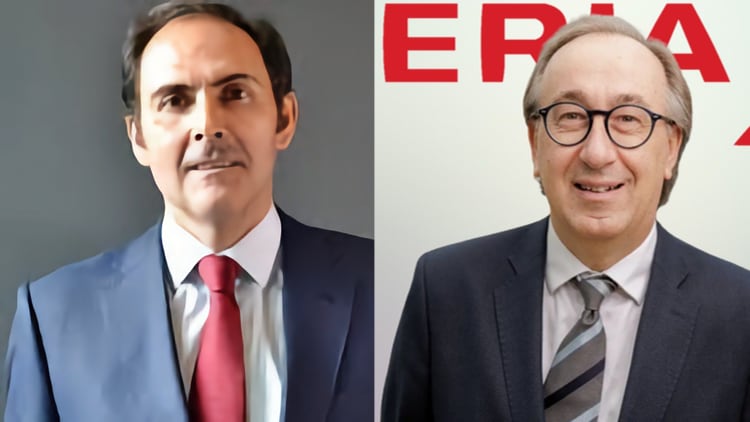Eduardo González
The European Court of Human Rights (ECHR) yesterday authorized the extradition to the United States of former Venezuelan intelligence chief Hugo El Pollo Carvajal, currently imprisoned in Spain, after rejecting a lawsuit filed by the defense for the alleged risk that his rights would be violated in case of delivery to the U.S. authorities.
In an order published yesterday, the Strasbourg-based ECtHR considers that Carvajal, who is wanted “for drug smuggling offenses,” has failed to demonstrate that, “if extradited, he would run a real risk of being sentenced to life imprisonment without parole in violation of Article 3,” and therefore declares “the request manifestly unfounded.”
Carvajal’s defense had appealed to Article 3 of the European Convention on Human Rights – which states that “no one shall be subjected to torture or to inhuman or degrading treatment or punishment” – to try to prevent his extradition to the US, considering that there was “a real risk that he could be sentenced to life imprisonment, without access to any effective mechanism by which he could request a reduction of sentence or a review, with a view to determining whether his continued stay in prison is justified on penological grounds”.
In the ECtHR’s view, in order for Carvajal Barrios to be able to make his case, “he had to show that there was a real risk that a sentence of life imprisonment without parole would be imposed on him in the United States”. In this regard, the European Court is “convinced that he would be tried in a legal system respectful of the rule of law and the principles of a fair trial, in which he would have full opportunity to mount a defense with the assistance of legal representation.”
Apart from that, there are “many circumstances under which Carvajal Barrios would not receive the harshest possible sentence, including acquittal, a guilty plea or a plea bargain,” he continues. Moreover, he adds, “sentencing would not be automatic and would be based on a wide range of elements, including mitigating factors.” “Carvajal Barrios has not provided any information indicating that mitigating factors would not be taken into account in his case,” it continues. Likewise, the defendant “would also have the right to appeal.”
In short, the ECtHR considers, “such sentences are very rare in federal cases in the United States”. Apart from this, the Court considers that, in the case of an extradition, “in order to comply with Article 3, Spain is not obliged to examine the availability of procedural guarantees in the United States because examining the relevant legislation and practice of that State would be excessively difficult for the national authorities deciding on extradition requests”. Therefore, “Carvajal Barrios has not demonstrated that he would face a real risk of being treated contrary to Article 3 if extradited” and, therefore, “the Court considers that the request was manifestly unfounded and declares it inadmissible”.
The Case
Hugo Armando Carvajal Barrios is a Venezuelan citizen born in 1960 who is being held in Estremera (Madrid) and who belonged to the Venezuelan intelligence agency and even reached the position of head of counter-espionage under Venezuelan President Hugo Chávez. In July 2014, while working as Venezuelan consul in Aruba (Netherlands), he was arrested in that island under a warrant of arrest from the US State Department. As a result of his diplomatic immunity, he was ultimately expelled from Aruba, rather than extradited to the United States. In 2019, while serving as a member of Venezuela’s National Assembly, he was expelled from the Armed Forces and charged with treason for his support of opposition leader Juan Guaidó as president. He fled the country to Trinidad and Tobago and later moved to the Dominican Republic.
In March 2019, Carvajal Barrios traveled to Spain under a false identity, but was arrested in April of that year pursuant to an Interpol search warrant. U.S. authorities requested his extradition on charges of, among other crimes, narcoterrorist conspiracy, conspiracy to import cocaine into the United States, and possession of machine guns and destructive devices for the commission of a drug trafficking offense.
In September 2019, the Spanish National Court initially decided to reject the US request, but also dismissed an asylum application filed by Carvajal Barrios on the grounds that he was a victim of US political persecution because of his links to Maduro’s inner circle. After being conditionally released by Spanish authorities, Carvajal went on the run in November 2019. In March 2020, despite being unaccounted for, the Council of Ministers approved his surrender to the United States to stand trial for the alleged crimes of drug trafficking and arms trafficking. El Pollo Carvajal was arrested again in Spain in September 2021, in the course of a joint operation by the National Police and the U.S. DEA in an apartment in Madrid.
After the National Court sought assurances from U.S. authorities that, in the event of surrender, there would be “the possibility of review of a life sentence” or “clemency measures” available, the U.S. Embassy in Spain sent a note verbale in November 2021 stating that, should the applicant be convicted, “he would not be subject to an unalterable sentence of life imprisonment because, if he were to be imposed a life sentence, the U.S. framework in place allows him to seek appellate review of his sentence and also to seek relief from his sentence in the form of a petition for pardon or commutation to a lesser sentence.” Therefore, the Embassy continued, “if pardon or commutation were granted in accordance with applicable U.S. procedures, it would result in a reduction of sentence.”
In October 2021, following a failed appeal for amparo, the National Court issued a notice for Carvajal Barrios to be handed over to U.S. authorities. However, extradition to the US was halted in December 2021 after Carvajal Barrios again unsuccessfully applied for asylum and subsidiary protection in Spain. In March 2022, the National Court again halted the extradition in compliance with a precautionary measure requested by the ECHR to the Spanish Government so that he would not be extradited until the proceedings before Strasbourg were concluded, but with yesterday’s decision, the delivery of the Venezuelan citizen to the U.S. authorities remains open.







